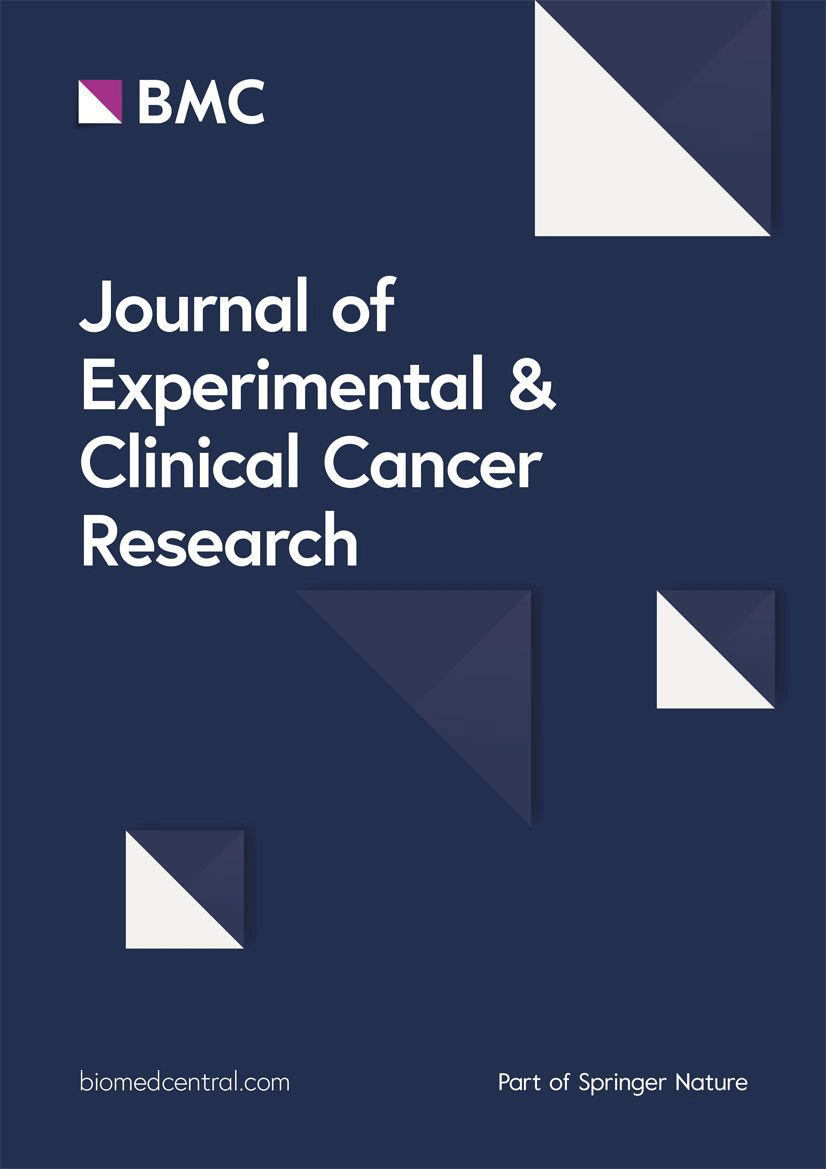利用源自患者的器官组织验证 CRC 综合治疗策略面临的挑战
IF 11.4
1区 医学
Q1 ONCOLOGY
Journal of Experimental & Clinical Cancer Research
Pub Date : 2024-09-11
DOI:10.1186/s13046-024-03173-x
引用次数: 0
摘要
根据不同肿瘤类型的组织建立的患者衍生器官组织(PDOs)为体内外模型奠定了基础,可用于筛选和/或验证许多候选抗癌药物的活性。由于其表型和基因型与原发肿瘤相似,患者衍生器官组织提供的结果可有效补充从更复杂的模型中获得的结果。然而,它们在预测联合疗法敏感性方面的潜力仍未得到充分开发。在这篇综述中,我们将讨论 PDOs 在验证和优化 CRC 个性化治疗策略的多种药物组合中的应用。此外,我们还介绍了在用不同细胞类型丰富 PDOs 方面的最新进展,从而增强其模拟体内环境复杂性的能力。最后,我们讨论了这种复杂的模型如何缩小了个性化医疗的差距,特别是通过免疫疗法策略,并讨论了这一前景广阔的领域所面临的挑战和未来的发展方向。本文章由计算机程序翻译,如有差异,请以英文原文为准。
Challenges in validation of combination treatment strategies for CRC using patient-derived organoids
Patient-derived organoids (PDOs) established from tissues from various tumor types gave the foundation of ex vivo models to screen and/or validate the activity of many cancer drug candidates. Due to their phenotypic and genotypic similarity to the tumor of which they were derived, PDOs offer results that effectively complement those obtained from more complex models. Yet, their potential for predicting sensitivity to combination therapy remains underexplored. In this review, we discuss the use of PDOs in both validation and optimization of multi-drug combinations for personalized treatment strategies in CRC. Moreover, we present recent advancements in enriching PDOs with diverse cell types, enhancing their ability to mimic the complexity of in vivo environments. Finally, we debate how such sophisticated models are narrowing the gap in personalized medicine, particularly through immunotherapy strategies and discuss the challenges and future direction in this promising field.
求助全文
通过发布文献求助,成功后即可免费获取论文全文。
去求助
来源期刊
CiteScore
18.20
自引率
1.80%
发文量
333
审稿时长
1 months
期刊介绍:
The Journal of Experimental & Clinical Cancer Research is an esteemed peer-reviewed publication that focuses on cancer research, encompassing everything from fundamental discoveries to practical applications.
We welcome submissions that showcase groundbreaking advancements in the field of cancer research, especially those that bridge the gap between laboratory findings and clinical implementation. Our goal is to foster a deeper understanding of cancer, improve prevention and detection strategies, facilitate accurate diagnosis, and enhance treatment options.
We are particularly interested in manuscripts that shed light on the mechanisms behind the development and progression of cancer, including metastasis. Additionally, we encourage submissions that explore molecular alterations or biomarkers that can help predict the efficacy of different treatments or identify drug resistance. Translational research related to targeted therapies, personalized medicine, tumor immunotherapy, and innovative approaches applicable to clinical investigations are also of great interest to us.
We provide a platform for the dissemination of large-scale molecular characterizations of human tumors and encourage researchers to share their insights, discoveries, and methodologies with the wider scientific community.
By publishing high-quality research articles, reviews, and commentaries, the Journal of Experimental & Clinical Cancer Research strives to contribute to the continuous improvement of cancer care and make a meaningful impact on patients' lives.

 求助内容:
求助内容: 应助结果提醒方式:
应助结果提醒方式:


